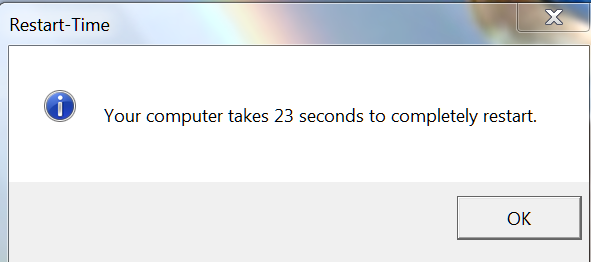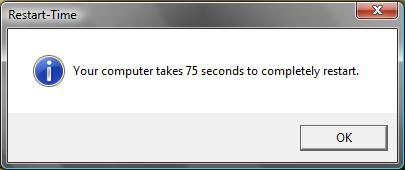The Momentus XT 500Gb SSD+HD has a 4Gb SSD cache (the 750Gb version has 8Gb), which the firmware automatically loads in the most frequently accessed files. I don't know how the algorithm works, how it decides this, but all I can say is that my cold boot time on my previous hard drive (5400rpm) averaged around 4-5 minutes until all boot/start-up services/programs finished loading (and my desktop would become usable). On this drive, I've timed it to about a minute. Restart took 75 seconds, which is about right as my shut down usually takes about 15-20 seconds (I ran the VBS script--see attached). Granted, if I had an SSD in place it would be significantly shorter relative to my SSD+HD. But frankly I'm fine waiting 75 seconds to reboot, compared to the 5-6 minutes it previously took me to reboot!
Browsing response times are faster too, especially video streaming. I think much of that is at least due to the 1800rpm speed increase. The faster spinning platter is also what uses more battery power. But again, for $60? 500Gb? Much faster response times? I'm very happy.



